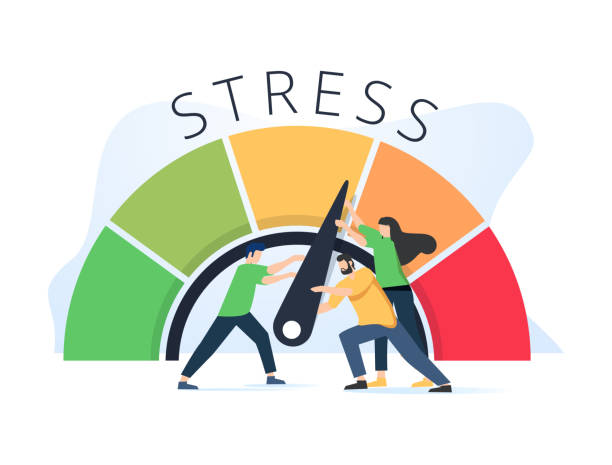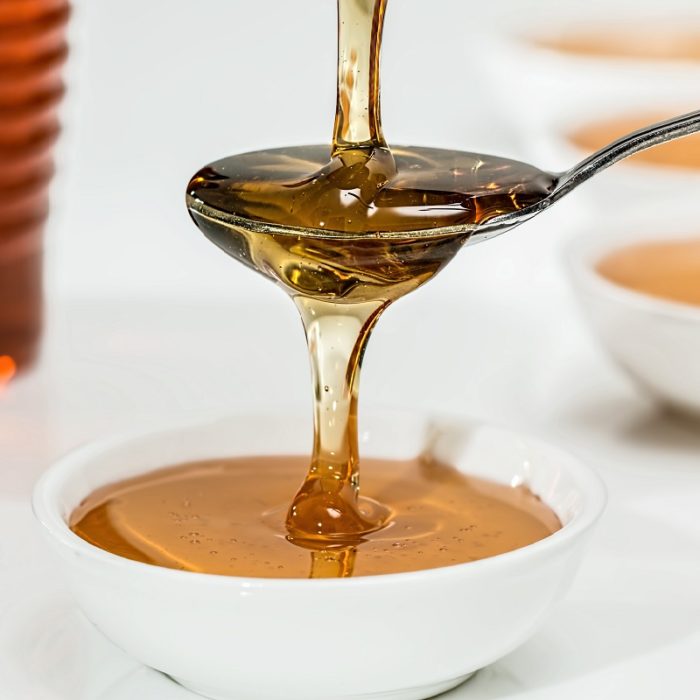13 Best Simple Ways to Relieve Stress Quickly (Home Remedies)

With the ever-growing demands of today’s workplace and society, people are subjected to an unparalleled level of stress in all fields. People are complaining of stress both physically and mentally too. The causes of the stress of daily life and the worries to earn along with health and personal expectations, the requirements are so high that a person feels burdened with a huge amount of pressure on their minds that finally leads to stress. Here gives some home remedies and tips for stress relief.
What is Stress?
Stress can be external (psychological/social) or internal (illness). A body reacts to these changes with a response. This response can be emotional, physical, or mental. Stress is the body’s way of reacting against any threat or demand while facing danger. It is a situation where you feel overwhelmed, unable to cope or find a solution.
Causes of Stress:
Everyone has different causes for stress there may be work, family or friends, health
- Long working hours leading to work-related stress (unhappy with the management, unclear goals, discrimination).
- The demise of somebody very close could be very devastating.
- Job termination/demotion.
- Causes of family stress and financial obligations.
- Divorce/Marriage.
- Transfer/Moving to a new place.
- Chronic illness.
- Physical injury.
- Emotional worries.
- Violence or traumatic event.
- The stress of keeping up with peers, lacking a sense of belonging.
- Relationship issues/spouse/parents/children.
- Seeking perfection all the time.
- Bullying/peer pressure.
- Unrealistic expectations and deadlines.
- Retirement/loneliness.
- Lack of judgment.
- Feeling overwhelmed.
- Setbacks in finance and causes of financial stress.
- Personal belief.
Symptoms of Stress:
Stress symptoms are as follows:
- Low energy.
- Fatigue.
- Headaches.
- Difficulty sleeping.
- Aches/pains/tense muscles.
- Difficulty concentrating.
- Chest pain/rapid heartbeat.
- Irritability.
- Insomnia.
- Depression caused by stress.
- Frequent colds/infections.
- Stress cause high blood pressure.
- Loss of sexual desire.
- Abnormal heartbeat (arrhythmia).
- Compulsive behaviour.
- Heart disease.
- Upset stomach (cramps/constipation/diarrhea).
- Fertility problems.
- Stress effects on the skin (acne/eczema/psoriasis).
- Heartburn.
- Ulcers.
- Weight gain or loss.
- Irritable bowel syndrome.
- Flare-ups of asthma or arthritis.
- Memory and concentration problems.
- Anxiety.
- Mood swings.
- Heart attack due to stress.
- Dry mouth.

8 Simple Ways for Stress Relief:
However, it is very important to control this problem and adhere to techniques that can give stress relief. This is solely because stress is the root cause for most of the health problems and crises. To ensure that you live a smoother life, this guide below is a perfect escapade for stress relief. Check them out and adhere to 2-3 of them.
- Adhere to Exercise: Upping one’s activity level is a good tactic to deal with stress. Regular exercise for stress serves as a good distraction and is one of the great stress busters. There is nothing better than including about 30 minutes of exercise in the daily routine. This can be something as simple as a walk in the fresh air, or any kind of sport that you like. Try it out for a week and see how well it helps to relief from stress without much effort.
- Yoga and Meditation: Relaxation techniques like yoga and meditation are some of the ways to bring peace to mind. Yoga has always helped as one of the ideal ways to handle stress. Meditation again gives you inner peace if done for at least 15-20 minutes daily. These are some habits that boost feelings of serenity and joy. It can reduce day-to-day stress levels and help you to stay calm. One cannot completely eliminate the stress from one’s life, but one can certainly learn how to control it.
- Proper Rest and Sleep: The constant feeling of fatigue and tiredness can only increase the psychological symptoms of stress. Lack of sleep and rest is one of the major causes that aggravate the problem of stress. If one ensures getting 8-9 hours of undisturbed sleep and proper rest from time to time in the form of naps, then that can achieve stress relief. It is one of the perfect habits to adhere to.
- Get A Massage: Physical symptoms of stress are helped by taking a massage with aromatic oils is one of the right things to do when it comes to stress relief. The aromatherapy from the essential oils and the massage will help in releasing the pressure from the muscles as well as the nerves and help you de-stress the state. It is one of the top picks for reaching the goals. Massage therapy can decrease pain and improve muscle relaxation. This improves both sleep and mood quality making you feel rested.
- Talk it Out: Nothing can be better than having a strong support network in the form of friends and family. This helps the psychological symptoms of stress. Simple stress relief technique is to talk about the issues that are causing the problem in the first place. Choose someone close to you whom you can confide in. This is one way to reduce stress from the mind, and it really works!
- Eat Well: We are what we eat! This is one of the mantras that people believe in nowadays. Eating healthy and nutritious meals will ensure that one has proper body functioning, as well as a healthy mind. Include a lot of fruits and vegetables, nuts, and high protein-rich foods in the meals to get the best outcomes. Apart from this, stay away from junk foods that only hamper the body and mind and lead to more diseases caused by stress and improper health conditions. Eating healthy is a step forward in stress relief.
- Deep Breathing: A simple and easy method of stress relief is to practice deep breathing. Make sure you breathe in slowly and breathe out slowly as well. During this time, do not think about work and rather think about pleasant things. This should be done for at least 10-15 minutes daily. While doing deep breathing exercises, the oxygen supply to the brain increases and one tends to feel calm and at peace.
- Have Sex: Yes, you heard it right! Professionals have proved that sex is a great stress reliever. One should have intimate moments with the partner when they are looking for ways to reduce stress. It is an idea that will allure you. The release of endorphins and other hormones elevates the mood and an effective stress reliever.
5 Home Remedies for Stress:
1. Lemon Balm Tea (Melissa Officinalis)
This is a calming herb and belongs to the mint family. Lemon balm has a natural mint flavour with a tinge of lemon taste. The lemon tea elevates the mood and helping to relax the body without causing drowsiness. The antioxidants in this tea have anxiolytic properties that help to relieve from anxiety and stress symptoms.
Ingredients: Lemon balm leaves (dried or fresh).
How to Prepare:
- For every cup of boiling water, add 1 tablespoon of dried lemon balm leaves (or) 2 tablespoons of fresh lemon balm leaves.
- Strain before drinking.
2. Passionflower Tea (Passiflora Incanata)
Passionflower tea is a natural remedy to get relieve anxiety and emotional symptoms of stress. The flavone chrysin found in Passionflower has anti-anxiety benefits. It helps induce peaceful sleep.
Ingredients: Passionflower Tea.
How to Prepare:
- In a cup of boiling water.
- Add 1 tablespoon of dried passionflower.
- Let it steep for 10 minutes.
- Strain and consume.
Precaution:
- Avoid passionflower if you are taking sedatives.
- Children below six months of age and pregnant/lactating women should avoid this.
3. Lavender Oil:
In aromatherapy, essential oils like lavender oil ease stress and anxiety. Lavender has a fragrant, soothing scent and used in home remedies for stress relief. It is claimed that it has anti-inflammatory, anxiety-relieving, and muscle-relaxing properties. It is also said that the smell of lavender can soothe frayed nerves.
Ingredients: Lavender Oil.
How to Use:
- Blend Lavender oil with a carrier oil.
- Massage this oil into the skin.
- One can also inhale a few drops of lavender oil sprinkled on a tissue.
- It can also be added to a diffuser.
- All these methods help in relieving anxiety and reducing stress.
4. Chamomile Tea:
Among stress relief tips, Chamomile tea is known not only to reduce stress and anxiety but also helps to treat conditions like insomnia. It helps to relax muscles and reduce irritability. Ideally, this tea should be taken about 30 minutes before bedtime. The tea is said to have a sedating effect on frayed nerves.
Ingredients: Chamomile tea.
How to Prepare:
- In a cup of boiling water.
- Add 1 tablespoon of Chamomile tea (tea bags can be used too).
- Let it steep for 5 minutes.
- Strain and consume.
5. Valerian Root:
Valerian root is a plant with mild sedative properties in herbal remedies for stress. It is used for anxiety and as a sleeping aid. This root gives stress relief from restlessness and anxiety symptoms by improving sleep quality. The root of the valerian is used in the form of capsules, tablets, teas, and bath additives.
Ingredients: Valerian Root Tea powder.
How to Prepare:
- In 1 cup of boiling water.
- Add 1 teaspoon of valerian root powder.
- Allow it to steep for 10 minutes.
- Strain and consume.
- It should be consumed ideally 30 minutes before bedtime.
Risk Factor:
There have been studies that have found diseases caused by stress.
- Asthma: Stress, according to many studies, is known to worsen asthma. Children with parents who are stressed out have a higher risk of developing asthma.
- Heart Disease: It is known that sudden emotional stress can lead to serious cardiac problems and even heart attacks due to stress. People with chronic heart problems must avoid acute stress.
- Obesity.
- Headaches: Stress is a common trigger for headache, be it tension headache or migraine.
- Diabetes
- Depression and Anxiety: Chronic stress is connected directly with depression. People holding demanding jobs have 80% more chances of developing depression caused by stress.
- Alzheimer’s disease/ memory loss due to stress.
- Gastrointestinal Problems: Stress does not cause ulcers, but if one has an existing ulcer, then stress can most certainly worsen it.
When to Consult a Doctor?
One should seek professional help when stress results in thoughts of self-harm, harming others, rapid heartbeat, chest pain, and unusual headaches, etc. This will enable your doctor to assess and make a note of your history and perform a physical exam to diagnose. The doctor will look for underlying symptoms that could be the source of the stress.
Stress is nothing but a person’s ability to cope in a situation that requires a response or adjustment. The reaction of the body can be mental, emotional, or physical. Everybody experiences stress at some point or the other in their lives.
1. What Is The Difference Between Migraine Headache And An Ordinary Headache?
When we refer to headaches and migraine are known to cause pain in the face, head, and upper neck. It can vary in intensity and frequency. Migraine is different because the pain is much more in intensity. It causes symptoms like nausea, sensitivity to light and sound and vomiting. Migraines are a neurological disorders. They occur because of increased excitability in some parts of the brain.
2. How Can Stress Be Healthy?
Healthy stress is also known as short-term stress. This kind of stress is beneficial to one’s health. In this, one’s determination can help in focusing on completing the tasks assigned to you. Achieving goals is a vital part of good mental health. It boosts one’s memory and helps in the efficient accomplishment of tasks. Good stress can make you stronger by making you physically and mentally tough to handle unexpected situations.
3. How Do We Know That We Are Overstressed And Need Help?
Stress is nothing but the body’s way of protecting you from any threatening event. After a certain point, this becomes harmful to us where there is a danger of it, causing harm to our health and life. Some of the common warning signs are the following. They are cognitive signs (problems with concentration, memory, poor decision-making skills), Emotional signs (anxiety, mood swings, irritability, agitated and depression), Physical signs (migraines, aches and pain, chest pain, and sleep cycle changes).
Disclaimer: The remedies and relief tips mentioned in the article are for creating awareness about stress, its effects on the mind, and body. It is to help you identify the warning signals of stress. This article is not to be construed as medical advice. In situations of overstress, it is better to seek professional help to alleviate the symptoms.


















